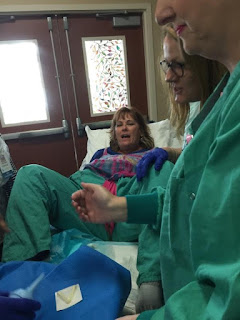What is happening to all the pregnant women?
There has been a lot in the media and medical journals about the rising morbidity of pregnant women in the United States. What is going on? I have been working in maternal child nursing for my whole career of almost 40 years. I currently work in a Level 1 obstetrical unit. This means we should be seeing the healthiest of pregnant women delivering at our hospital and yet, as I sat down with a few colleagues on my unit this week, we were discussing the probability of needing to consider having telemetry on our unit to monitor our patient's cardiac status. This is something we never would have thought before.This year when we were considering the purchase of a fetal monitor attachment that would give us the capability to monitor obese patients more easily, I started to track the numbers of women who would actually need this for their labors and it was shocking. I thought the number of women with a BMI greater than 30 would be about 30%. However, the number turned out to be over 60%. Obesity causes many complications we are seeing in our patient population: gestational diabetes, hypertension in pregnancy, shoulder dystocia, obstetrical hemorrhage, cesarean sections, poor healing after birth..... and on and on...
The risks of the things we see on the OB Floors these days has necessitated that the staff become more aware of the early warning signs for many different disease processes. We have to be aware to keep all patients safe. This is done with drills and training with the staff, shift huddles to discuss challenging patients, debriefing after an event occurs. It also involves reaching out to our partners inside the hospital. The Emergency Department is an important partner, because the pregnancy period not only includes when the mother is actually pregnant but also the time in the weeks immediately following birth. Today our OB Educator participated in the Emergency Department skills fair to bring their team additional knowledge on obstetrical emergencies.
It is important to work together as a team and to share information with our partners so we can best work together in emergent situations. Obstetrics should be considered a high risk environment because we never know what is going to happen. It isn't rocking babies and dealing with happy, healthy, easy patients any more. We have to be ready for anything in our population especially as they present to us sicker than they ever have.
It is also important to work on the pre-pregnancy health status of women. We need to work together to solve the issue of obesity in women and the overall health of women prior to when they get pregnant. Exercise, good food, and good mental status are important prior to getting pregnant. Women should plan on seeing their OB/GYN provider prior to conception to discuss overall health.









